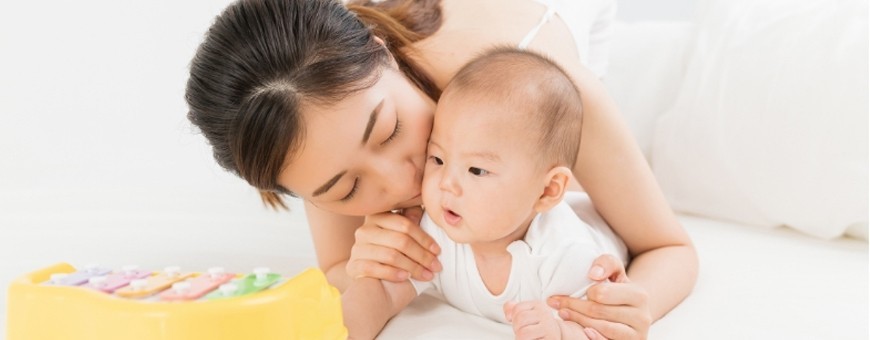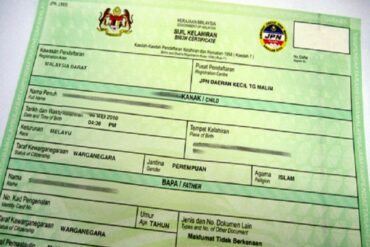Photo source: Baizigui.com
The confinement period—mothers learning to heal. Most cultures no longer give mothers and babies a confinement period long enough to ensure a full recovery, though some still do. For instance, Chinese culture relies heavily on maternal healing during the confinement period. We all need to return to allowing this to happen. Mothers will become better caregivers if they are allowed this period of adjustment and recovery.
Why is it that we do not allow mothers the time to heal any longer? Many people believe that this stems from how busy our lives have become. We have expanded mothers’ responsibilities over the years. While women used to stay home and be the sole caregivers, they have now entered the workforce in far greater numbers than ever before. On the other hand, they are still the ones who are generally the primary caregivers for children. The Chinese continue to practice the confinement period following childbirth. They generally allow thirty days to recovering mothers. This time is their confinement period. Women are encouraged to rest and not worry about anything other than their child and recovery.
What Is Off-Limits?

Photo source: South China Morning Post
In traditional Chinese and Indian philosophy, it seems that almost everything is off-limits. The Chinese tradition says that even bathing and showering are off-limits. While many people do not follow the lack of bathing in Chinese philosophy now, it is understandable that why it was banned for so long as it is believed that bathing during the first month after birth increase the chances of catching cold and increase the risk of rheumatism in later part of their lives. However, for tropical country such as Malaysia, it is perfectly ok to take a warm bath as personal hygiene is just as important.
Leaving the home is not permitted during the confinement period. Women are encouraged to stay home and care only for themselves and their babies. Workouts are challenging for the body, so they are also discouraged.
What Do Women Do During Confinement?

Photo source: John Hopkins Medicine
Women are encouraged to do as little as possible during the confinement period. Generally, other women in the family will come into the home and help the mother care for the child. They may also come to help her care for herself. The mother’s top priority is healing and learning during this confinement period. Travel outside of the home is discouraged for most reasons during this period. Massages and personal care are emphasized and encouraged during this period. Allowing the mother to rest and recuperate during this period will undoubtedly help them heal faster and more fully.
Education

Photo source: Parents.com
For first time mothers, the confinement period can help her learn to care for her baby. New mothers, no matter their age, often struggle with learning to care for their babies. They want to be good parents, but babies seem so fragile, so they are afraid. Pairing new moms with experienced mothers or nurses during this period can help them gain confidence and learn the best techniques for holding their babies and helping them learn to soothe.
Benefits
Confinement centers usually do not allow frequent visitors. On the other hand, taking the confinement period at home means that some of the most trusted women in the family and family friends can help the new mother ease into motherhood.
Mental Health

Photo source: Mind Body Green
Easing into motherhood is not as easy as it sounds. Even if the new mother is not exceptionally young, this adjustment period is often challenging. One of the things many mothers do not realize is that the period of sleep deprivation and new routines following childbirth can often make mothers feel that their minds are slipping away. However, with the presence of mothers, sisters, and even confinement nannies, they can often make new mothers feel that they are doing okay. Having someone to help with 3 am feedings can also make healing easier.
Emotional Stability
Women who have time to learn their babies without worrying about other tasks can help them regain their emotional stability. Mothers often feel that they are failing at learning the things their babies need. This can be exacerbated by trying to care for other household members or children. Giving them at least a month, if not six weeks, will improve their emotional stability. They will be able to focus more on their baby and not feel that the exhaustion is overwhelming. By providing them with helpers such as nurses, older female family members (their mothers/ aunts), or trusted friends, new mothers can feel more confident and emotionally capable of taking on motherhood.
Confidence
Confidence is an aspect of mental health that many people forget. Mothers who are struggling with their new roles are simply struggling with the confidence they need to succeed. They do not believe that they are doing a good job or that they will be able to continue to do well once their helpers leave. The confinement period can allow them time to practice and build that confidence. The helpers can also begin to pull back and show the mothers that their instincts are better than they thought.
Bonding
One of the most important aspects of parenting is bonding with your child. For mothers who are trying to care for themselves, spouses, partners, or other children, it can sometimes feel that they are not bonding well with their new child. However, by allowing mothers to spend this time recovering, they can also bond with their child without the interference of other necessary tasks. Women can ease into parenting and feel a stronger bond with their babies.
Minimize the Effects of Post-Partum Depression

Photo source: ESME.com
While depression is sometimes a result of a chemical imbalance in the brain, it can sometimes come from feeling anxious or ill prepared. Women who are allowed a full recovery report fewer feelings of post-partum depression. In addition, women who have social support also find that post-partum depression symptoms are drastically reduced. In order to do this, however, the confinement period must be coupled with the help of nurses or trusted mothers in the new mother’s life.
Physical Health
Rest, relaxation, and healthy eating are all great for physical health. Spending time recovering during the first thirty days postpartum can drastically improve healing. Nutrient-rich foods are fantastic for health and healing after a physically traumatic experience. Even the smoothest births are incredibly traumatic for the physical body. Not only has the body spent the last 8-10 months growing and creating another life, but childbirth requires the removal of this growing baby.
This drastic change to the body makes it challenging to fully recover. Even at the least number of days, most doctors request that mothers spend 30 days in recovery. Working mothers are not permitted to return to work for six weeks in most cases. Thirty days of recovery through a confinement period lines up with this modern medicine’s recommendations.
Should Everyone Practice Confinement
While you do not need to practice all of the confinement period restrictions, taking time to heal, eat properly, and learn your baby will help you heal faster, both mentally and physically. Mothers need to rest and heal so that they may take care of their families more fully. Women who are allowed to rest and recover after childbirth often have fewer health complications related to childbirth. On the other hand, women who immediately return to life as usual or a vigorous schedule often injure themselves more frequently. Take a little time to recover—even if you do not follow the confinement period. The rest will do you some good.







